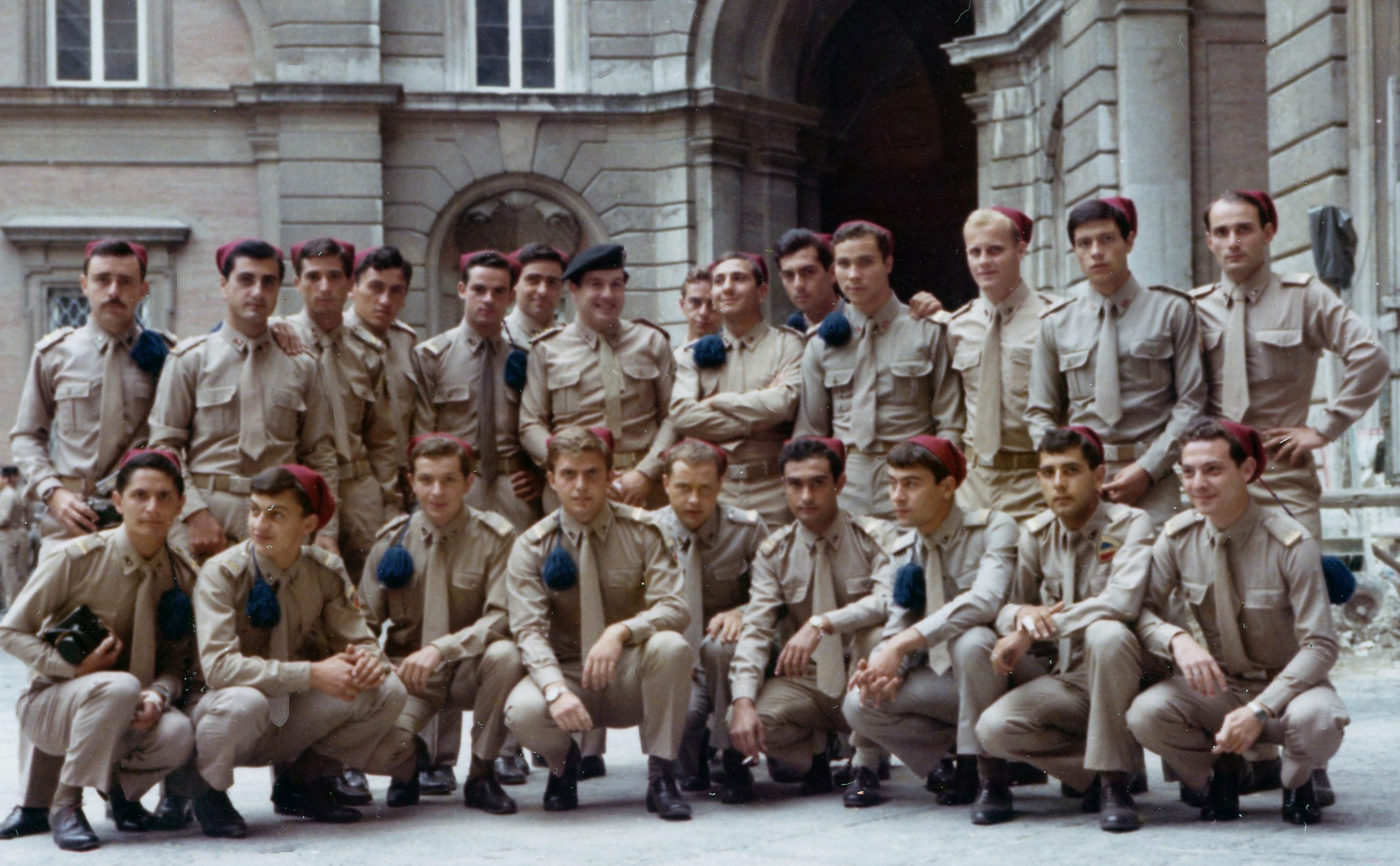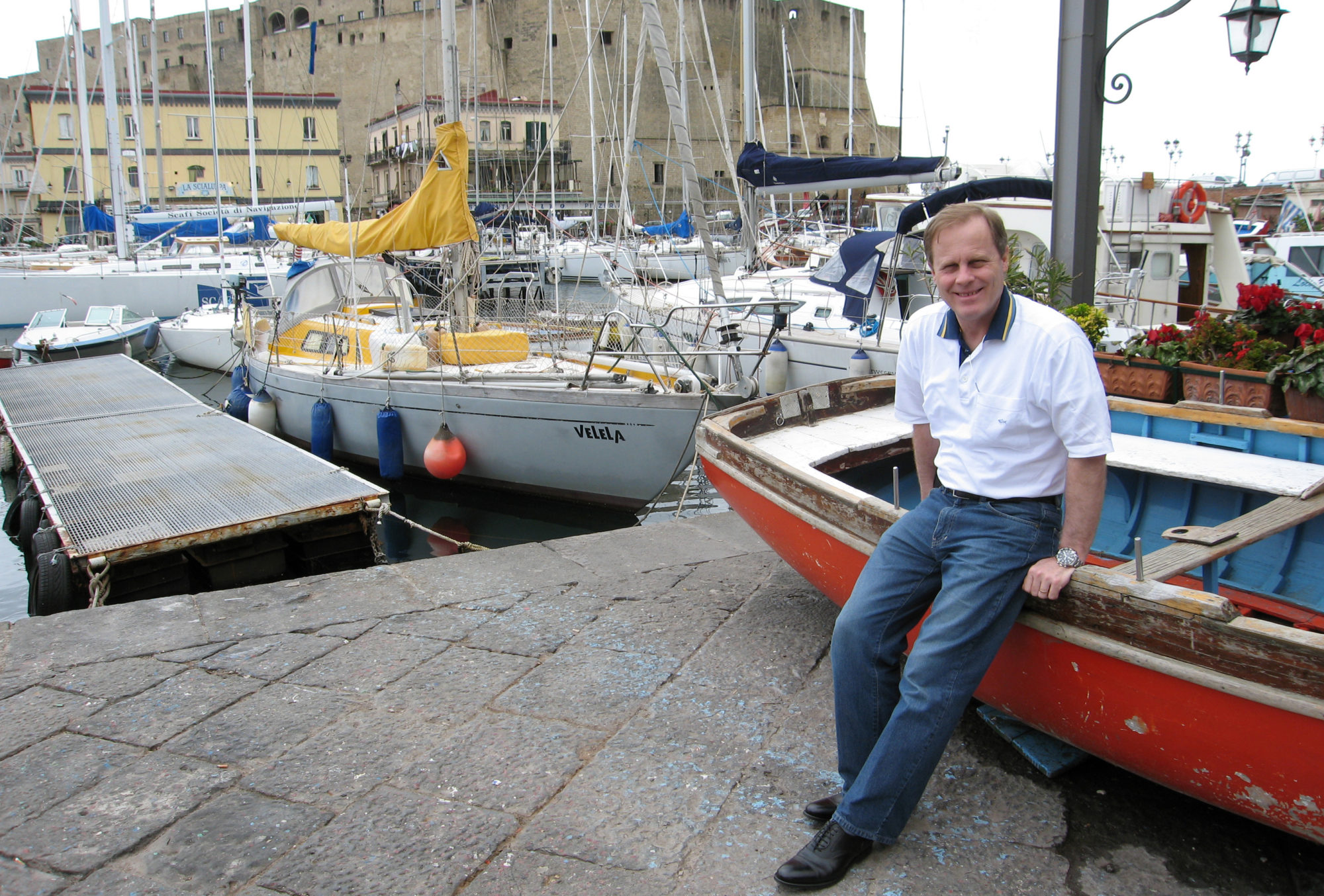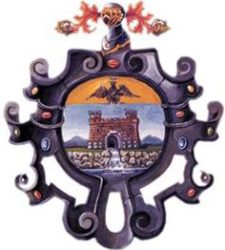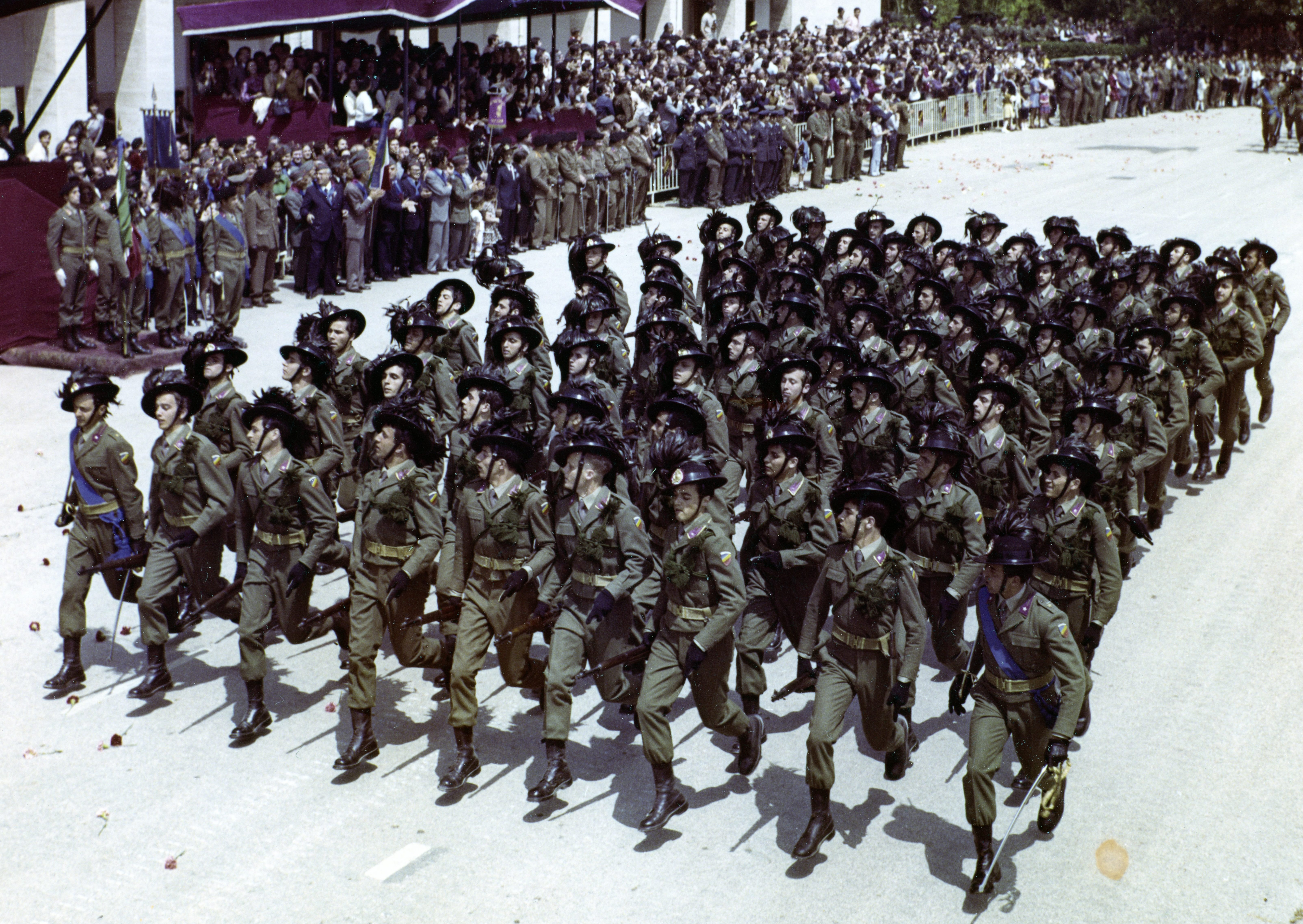
Bersaglieri means “marksmen”. The military corps were created in 1836 by the Italian General Alessandro La Marmora and trained to be fast moving infantry units.
Formed for the relatively poor Kingdom of Piedmont-Sardinia to save on the cost of horses required in cavalry units, and quite similar to the French chasseurs à pied, Bersaglieri were trained to be the fittest soldiers so that they could move quickly from one location to another.
Operating from loose formations they were encouraged to act freely and initiate moves independently without any direct command and control. They fired individually at will and carried 60 rounds instead of the usual 40 rounds of the traditional line infantry.
Their first uniform was black with brimmed hats, called “vaira”. The viara was intended to defend the head from sabre blows.
In the early 1800’s the Bersaglieri impressed King Charles Albert of Sardinia & Piedmont, and he immediately had them integrated into the Piedmontese army.
Bersaglieri always run to reach to wherever they are going and are punished if they forget to. During parades they keep a preset pace of 180 steps per minute lifting their knees so that the upper part of their legs is parallel to the ground and wear their viara with long black rooster feathers..
Today Bersaglieri operate in conjunction with all mobile military armor.
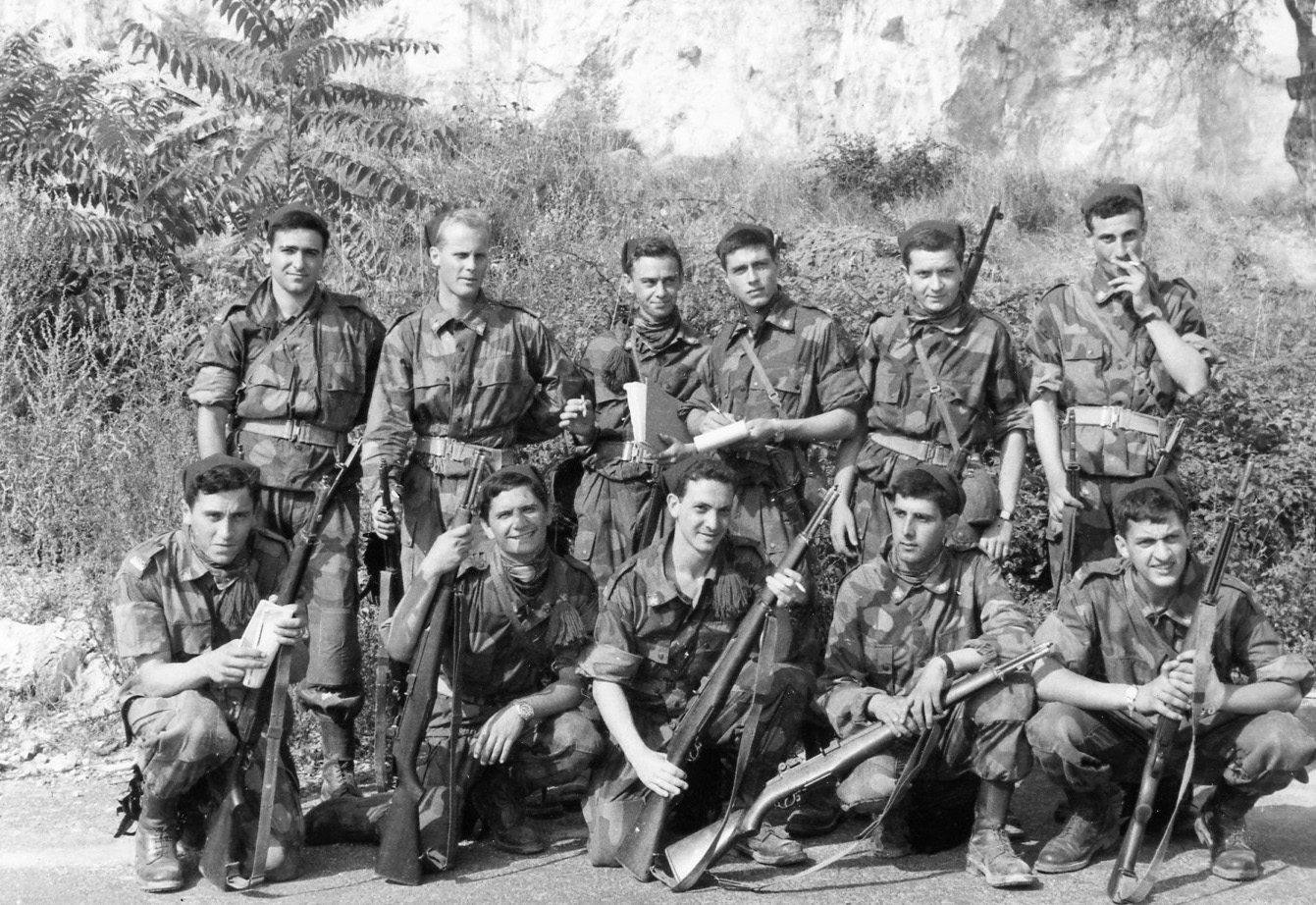
When I was pretty young one of the things that Dad emphasized with me was that every male citizen had the responsibility to serve his country in its armed forces for the prescribed amount of time determined by law. Dad would never hire someone who hadn’t completed what he defined as, their duty or responsibility to their country.
In the 1950’s and into the 1960’s most everyone in Italy felt the way my Dad did except for maybe some of the communists who for political reasons always feared the military arm in Italy. And as a matter of fact in both 1964 and 1970 there were two failed coup d’etat in Italy that came close to being carried out.
So after I had completed my college education at Wheaton College in June 1971 I felt I should serve in the armed forces for the prescribed amount of time. The US military, however, would not accept me because my Dad was an ex Italian POW.
But I had dual nationality.
So upon returning to Italy, as required by the Italian law, I registered with the local authorities as repatriated.
Not too long after that I was drafted into the Italian army for the required military service and soon after was on my way riding on a train with a second class ticket headed for a town south of Rome right next to Naples, called Caserta.
I was the first to arrive at the Caserma Amico (the military base) for the 67th Corso AUCI (67th Officers Training Course) checking in a day or two ahead of most the others. While waiting around a first lieutenant took one look at me and then said: “You will participate in the Italian military pentathlon”. A few weeks later, another officer took me out into a nearby training field to test me on the different sporting skills required for the pentathlon.
Now I was mentally and physically prepared for many of the disciplines required while training in the mobile Italian corps known as Bersaglieri. Armed with a good attitude I had no problem volunteering for everything the other soldiers would try to escape from doing. To my surprise, the older cadets who were running things the first week, began ignoring me when I raised my hand to offer to do what they were asking. Instead they sought after those that evaded or complained about the work. Aldo S. was one of those that they nailed with the least desirable chores. Because I raised my hand and volunteered to help for everything, I actually ended up being asked to do practically nothing. After 6 months in the 6th Company known as, Bir el Gobi, the only times I cleaned the bathroom or kitchen was when I volunteered to help my friends. Instead I was assigned supervisory roles where no labor was required on my part.
Wherever the Bersaglieri go they have to run and their motto is “exercise in any way possible until you reach a frenzy!” The Bersaglieri would often boast that they had more exacting physical fitness standards than the Italian paratroopers.
Well there were other Bersaglieri who also were very athletic and early on one of them, called Stefano B., who had been a track star, ran a time trial around a nearby field in a record time. When my turn came to run around the same field three times, I knew there was no way I could run as fast as he had, not even if an angel lent me his wings. Nonetheless I ran my three laps as fast as I could. After crossing the finish line in my mind I had confirmed that it had taken me longer than Stefano, but to my surprise Tenente Rezzoagli announced that I was faster! Astounded I told the officer, “impossible”. The officer promptly showed me the stop watch and to my surprise my time was better than Stefano’s!
Later on I was told that some of the other Bersaglieri had seen Stefano cut all the corners on the far side of the field when he thought no one would notice. This allowed Stefano to reduce his time. After thinking about it for a day or too I realized that the Italian officers were used to this kind of cheating in sporting events and so when my turn came to run the course the officer in charge simply waited about 20 seconds before clicking to set the stop watch in motion – that way I would have the best time and automatically win the race!
This kind of thing happened several times while I was training as a Bersagliere.
In another occasion a big swim meet was held in the military compound where we were preparing to become officers. Members of the Italian armed forces from all over Italy came to compete in several different swimming events. One of the races that I participated in was the 800 freestyle. Giovanni Sessa, my friend and fellow Bersgliere from the 6th Company Bir El Gobi, had been a great swimmer during his earlier days and his best time on the 100 meters was ten seconds less than my best time in the same event! There was no way I could beat him in any freestyle race, not even with a torpedo motor tied to my feet. Just the same I was determined to do the best I could.
After the gun fired we all dove into the pool and for the first 700 meters of the race I let Giovanni stay ahead of me monitoring his pace and position carefully. When there was only about 100 meters left in the race I moved up just a little closer so that I would be trailing just behind him. Then with about 50 meters left to go I went ahead of him and tried to increase the distance as much as I could on the very last lap.
To my surprise Giovanni did not catch on to what was happening until it was too late. He and I were several lanes apart and in those days everyone breathed on the left side and not at all on the right and so anyone wanting to monitor whether any of the other swimmers were ahead of them could do so only if the other swimmers were on their left side. You were always blind to anyone swimming on the right side.
Because of this, on the last lap I could see Giovanni, but he could not see me. When Giovanni finally caught on to what had happened it was too late for him to catch up because I was too far ahead of him.
Later I realized that God had placed me in the middle lane so that I was in a more advantageous position to monitor all the other swimmers. Giovanni, instead, had been placed on the far left lane.
On another occasion, Aldo S. (same as above) got very upset with me for having assigned him to guard duty a little further out from the rest area than some of the other soldiers. I had done this with no premeditated thought, but that summer night it was pretty cold and standing still for two hours was a bit of a challenge for someone who had little discipline and self-control. Well for really no rime, reason or provocation from my part Aldo took out his bayonet and came at me with it raised above his head shouting “I’m going to kill you.” I did not move even an inch from where I was sitting but a couple of other soldiers fearing for my life bravely rushed toward him to stop him just as he was about to fall upon me – maybe three meters before he reached me.
Not fearful, but instead quite confident, I knew I was still in time to grab Aldo’s arm and twist the bayonet out of his hand and overpower him if he had gotten any closer. Later on Aldo got in big trouble for being disrespectful with a petty officer and was finally black balled after the last oral exam, the only one in our company to never graduate as an officer from the 67th Corso AUCI.
I graduated from the 67th Corso AUCI toward’s the top and would have been the first in my class had it not been that my academic performance was not stellar.
On one occasion during my service as a first lieutenant in Sacile, I was given public praise at a gathering of the entire regiment for how well I had led a squadron of soldiers at a historic celebration in the city of Goito. This event was meaningful to me because the Commanding Colonel of my regiment, Guglielmo Pianelli, who honored me in front of everyone was an old fellow WWII POW in America together with my father and they were close friends.
I am thankful for that time in the Bersaglieri and for all that I learned about working directly with Italians and also with how satisfied my Dad was with me. I think at first he may have had some concerns that I might not have been shrewd enough to deal with some of the impudence of my fellow Italians, but even then I think he thought I would eventually learn to handle things by myself through the school of hard knocks, a school he knew much about.
The successful time in the Bersaglieri was all the Lord’s doing. He was watching over me and it was only because of his intervention that I was able to excel.


A fellow POW of my father’s, Gen. Guglielmo Pianelli, had just built the pool a few years before.


